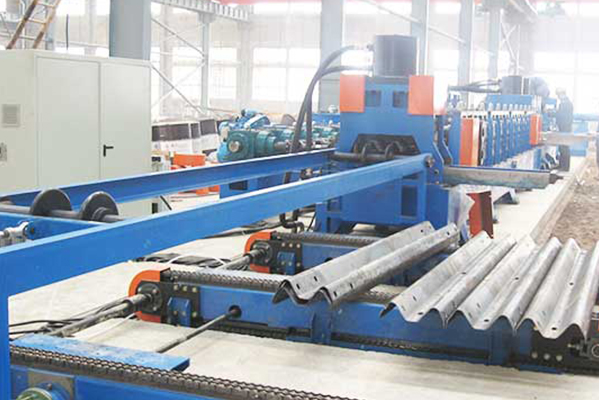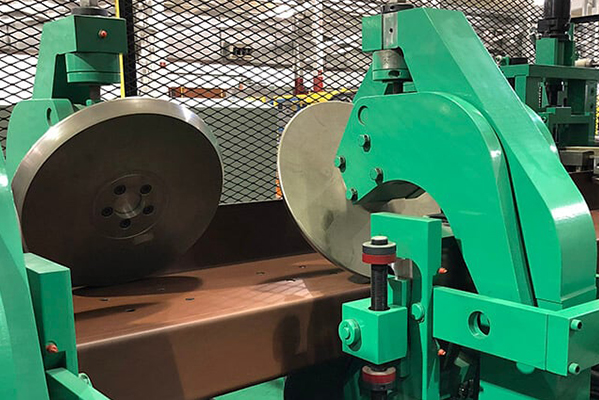Navigation Menu
Contact Us
- Email:
- info@wxavatar.com
- Address:
- Yurong Village, Yuqi Street, Huishan District, Wuxi, China.
Release Date:Nov 12, 2024 Visit:250 Source:ROLL FORMING MACHINES LTD
The roll forming machine process has become a versatile and indispensable tool in the manufacturing landscape, adapting to the diverse needs of numerous industries. This process, which involves shaping flat metal sheets into three-dimensional profiles through a series of progressively bending rollers, has evolved to meet the specific requirements of a wide range of applications. By leveraging its flexibility and precision, roll forming machines have become a cornerstone of modern production processes across various sectors.

One of the key industries benefiting from the adaptability of roll forming machines is the construction sector. In this field, roll formed products such as roofing, siding, and structural framing are essential components of buildings and infrastructure. The roll forming process allows manufacturers to produce these components with high precision and consistency, ensuring that they meet the rigorous standards of the construction industry. Furthermore, the ability to customize roller sets to produce unique profiles and shapes makes roll forming an ideal choice for creating bespoke architectural elements and decorative features.
The automotive industry is another sector that has embraced the versatility of roll forming machines. In this highly competitive market, manufacturers are constantly seeking ways to improve efficiency, reduce costs, and enhance the quality of their products. Roll forming machines enable automotive manufacturers to produce complex parts such as door frames, roof racks, and bumper beams with high precision and repeatability. This process not only meets the stringent quality requirements of the automotive industry but also supports lean manufacturing practices by minimizing waste and maximizing material utilization.
The furniture industry has also benefited from the adaptability of roll forming machines. Roll formed metal components such as legs, frames, and handles are commonly used in the production of chairs, tables, and other furniture items. The precision and consistency of the roll forming process ensure that these components fit together perfectly, enhancing the overall quality and durability of the finished products. Additionally, roll forming machines can produce a wide range of textures and finishes, allowing furniture manufacturers to offer a diverse selection of styles and designs to meet consumer preferences.
The aerospace industry, known for its stringent safety and performance requirements, has also found roll forming machines to be a valuable asset. In this sector, roll formed parts such as aircraft fuselage sections, wing components, and landing gear assemblies must meet rigorous standards for strength, durability, and precision. The roll forming process allows manufacturers to produce these parts with the necessary accuracy and consistency, ensuring that they meet the high standards of the aerospace industry.
In addition to these industries, roll forming machines have also found applications in the electrical, electronics, and packaging sectors. In the electrical industry, roll formed components such as conduit and cable trays are essential for the installation and protection of electrical wiring. In the electronics industry, roll formed parts are used in the production of consumer goods such as computers, smartphones, and appliances. And in the packaging industry, roll formed materials are used to create durable and efficient packaging solutions for a wide range of products.
The adaptability of the roll forming machine process is not limited to the production of standard shapes and sizes. Manufacturers can customize roller sets to produce unique profiles and shapes that meet the specific needs of their customers. This level of customization allows roll forming machines to be used in a wide range of applications, from creating intricate architectural details to producing complex automotive components.
Moreover, the roll forming process is highly efficient and cost-effective. By minimizing material waste and maximizing production throughput, roll forming machines enable manufacturers to reduce their overall costs and improve their competitiveness in the market. This efficiency is particularly important in industries where margins are tight and cost control is critical.

In conclusion, the roll forming machine process has demonstrated its adaptability to the diverse needs of numerous industries. By leveraging its precision, consistency, and customization capabilities, roll forming machines have become an essential tool in the production processes of a wide range of sectors. As manufacturing technologies continue to evolve, it is likely that roll forming machines will continue to adapt and expand their applications, further enhancing their value in the global manufacturing landscape.